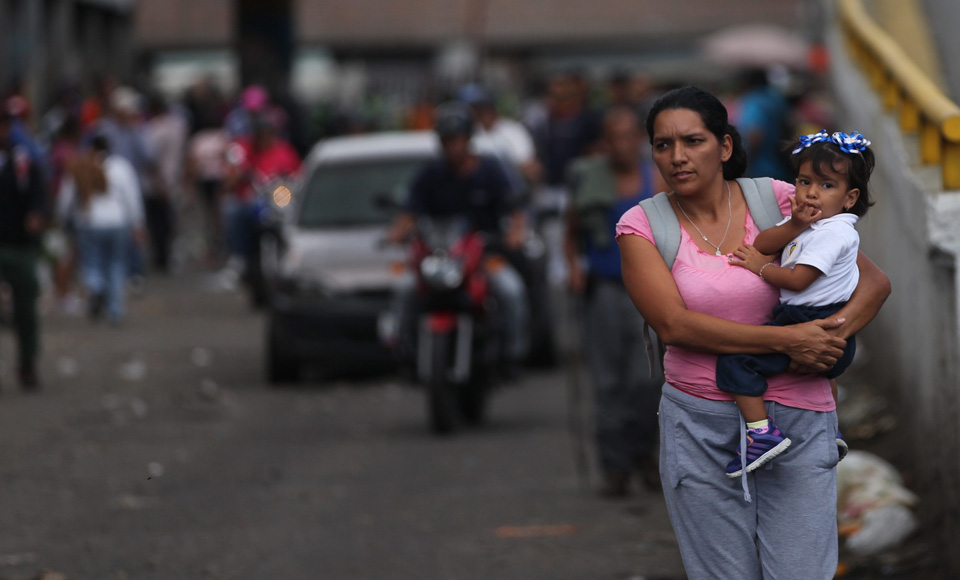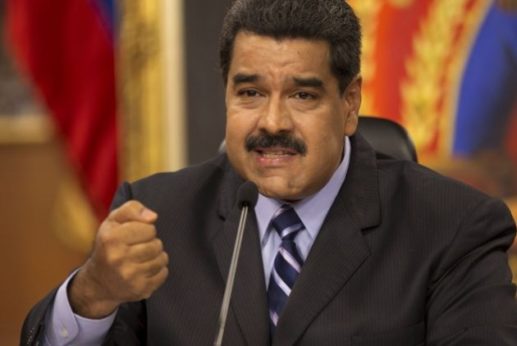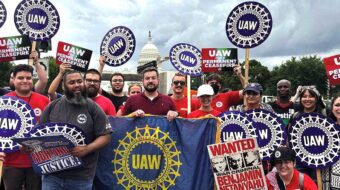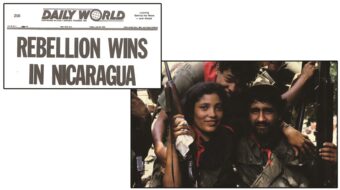
Political crisis in Venezuela may be reaching a tipping point. Violent mob rule in the streets has intensified. Between April 4 and May 20, violence took 55 lives; of these, the police killed eight people and opposition protesters killed 13. The 34 remaining deaths were either accidental or indirectly due to opposition violence, or at the hands of unknown perpetrators. Two months of street violence in early 2014 took 43 lives.
The fate of the socialist revolution launched by President Hugo Chávez’ Bolivarian movement hangs in the balance. Chávez’ successor Nicolás Maduro won the presidency in April 2013 by a thin electoral majority. Since then inflation, shortages of consumer goods, and stresses on social services have worsened, in part due to reduced oil prices and lowered export income. Venezuela’s oligarchy has arranged for the hoarding of basic supplies and manipulated the currency. Their efforts at economic destabilization have aggravated the situation.
The United Socialist Party of Venezuela (PSUV) lost majority control of the National Assembly in elections on December 6, 2015. And the U.S. government, having schemed against both the Maduro and Chávez governments, is increasingly looking to enlist Colombia’s right-wing government in its harassment of Venezuela.
The precariousness of Venezuela’s current political situation was on display on May 22. In Barinas state on that day, unknown thugs killed six more people. The state’s governor indicated that, “over 30 public institutions had been attacked and 100 businesses robbed throughout the state.” Former President Chávez’ childhood home in Barinas was burned and destroyed.
That day in Puerto Ordaz, wreckers attacked the facilities of a public transportation service and burned 50 buses, causing $11 million in loses. Luis Mejías, a steelworker, was beaten and tortured.
In Lara state, attackers struck at Barquisimeto’s commercial district. The police blocked streets and told storeowners seeking protection to close their facilities. The national government alleges a conspiracy between the police and Venezuela’s principal opposition group, the Democratic Unity Roundtable (MUD).
Demonstrators in Miranda state set fire to two buses with passengers aboard. They burned an ambulance and partially destroyed a medical clinic. Elsewhere, citizens rescued health workers besieged for three hours inside their clinic. Police in another location captured 16 terrorists laying siege to several communities and seized three trucks loaded with Molotov cocktail bombs. Attackers hit a military headquarters and set fire to the local PSUV headquarters. Stores were pillaged, a storage room filled with medicines at a public clinic was destroyed, a hospital was put under siege, and three police headquarters were burned.
The governor of Miranda state is Henrique Capriles, a national leader of the MUD opposition coalition. A video shows him urging on a group of 40 protesters equipped for violence. He reportedly provided them with money, food, and supplies.
The police on May 20 raided an apartment in the Sábana Grande district of Caracas where they found gas masks, rockets, and helmets. They arrested three people. Videos are circulating that show “shock groups” dousing two youths with gasoline and setting them ablaze for “being Chavistas.” Those assaults took place in Altamira, a wealthy district in Caracas.
Meanwhile, Venezuelan Vice President Tareck El Aissami announced the arrest of businessman Iván Suárez Sol. He allegedly paid off street fighters of the People’s Will (Voluntad Popular) Party and raised funds through money laundering. Officials arrested university professor Jorge Enrique Machado Jiménez, accusing him of taking charge of “shock groups.” A video shows him using a megaphone to do so.
Also under the heading of bad news: Attorney General Luisa Ortega Diaz announced on May 20 her dissent from President Maduro’s proposal of a National Constituent Assembly to draft a new constitution for the country. She believes that rather than promote “national reconciliation,” it “would accelerate the crisis.” She objects to the way delegates are to be chosen; half are selected from “sectors of society” instead of being directly elected by the public.

Luis Almagro, general secretary of the Organization of American States (OAS), continues with his campaign to expel Venezuela from the OAS, although Venezuela has signaled its intention to leave on its own.
Nations in the region are less supportive of Venezuela’s progressive government now than they were in 2002 when a coup attempt and general strike threatened President Chávez’ government. Observer Steve Ellner alludes also to a split within government ranks; Diosdado Cabello, the Chavista leader in the National Assembly, represents “hardliners,” while former vice-president Jose Vicente Rangel speaks for a conciliatory faction.
Street-fighting is taking place mostly in middle and upper class sections of cities, reports Ellner. He suggests that the oligarchy is waiting for “mass civil disobedience” to “spread to the poorer areas.” Increasing abstention in recent elections on the part of potential PSUV voters may signal weakened support for Maduro and thus increasing vulnerability of poor people’s districts to destabilization.
On the pretext of Venezuela threatening U.S. Security, the Obama administration imposed economic sanctions against Venezuelan officials. At a joint news conference with Colombian President Juan Manuel Santos on May 19, President Donald Trump announced new sanctions. He promised that his administration and Colombia will “work together” on Venezuela. That armored vehicles of the Colombian Army are now massed at the Venezuelan border in La Guajira may represent just such cooperation.
Venezuela’s future is clouded. Argentinian analyst Atilio Borón thinks that with new violence in the streets, “the counter-revolution has taken a ‘qualitative leap’ [and] that it would be naive and suicidal to think that the dynamics of this confrontation is anything other than the prologue for a ‘humanitarian intervention’ by the Southern Command of the U.S. Army.”












Comments